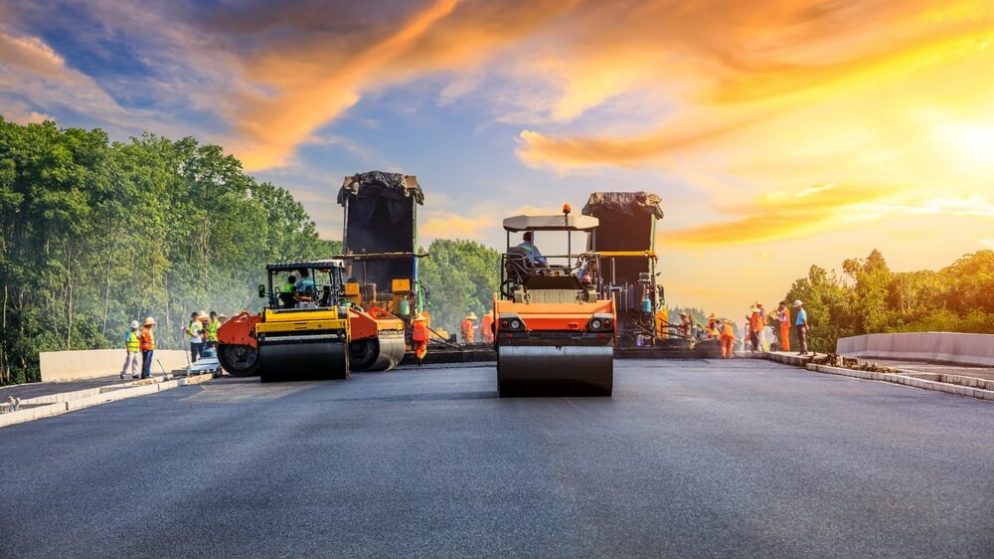

Following the recent repaving of the Atlantic Avenue, visitors going to enjoy the casino life in Atlantic City are soon going to have a new means of getting to their destination. The city administration is reported to have pumped in a sum of $2.7 million to improve the condition of the road. In what has sparked mixed reactions from the masses, the plan in progress is to reduce Atlantic Avenue from 4 lanes to 2 lanes.
According to the Mayor of Atlantic City, Marty Small, it was necessary to come up with a strategy for improving this road after it was listed among the most dangerous streets in America by recent studies. From the number of fatalities and all else that has been uncovered about this road, it was necessary for such drastic changes to be made. Small is excited about the anticipated outcome of improving this road and also for the fact that nothing of this kind has been done in the country before.
The project that has been dubbed, “road diet” has been funded through a grant that was facilitated by a U.S. Republican member of parliament, Jeff Van Drew. The infrastructure grant that was issued through the federal government will not only cater to the reduction of lanes used by motor vehicles but also the addition of bike lanes and parking spaces. By slowing down traffic on the road and allocating space to other road users, the city authorities are certain that the state of road safety will be increased.
In the five-year period between 2013 and 2017, the Department of Transportation’s Bureau of Research in New Jersey reported that a total of 829 car crashes had been recorded. All these accidents took place on the stretch of road from Albany Avenue to Maine Avenue. Investigations into the causes of accidents revealed that there were too many pedestrians on the road at any given time and the nature of the road was difficult for some users to navigate.
The casino scene as a whole is characterized by heavy road use, especially in summer when everyone is rushing in to test their luck – online casinos are ditched for the favorable weather. It is a fact that over 27 million people visit Atlantic City casinos every year. In data sourced from tourists visiting Atlantic City through TripAdvisor, this is among the highest trending destinations that have beaches in the United States. It means that the number of people opting for land-based casinos is huge and the only way to secure them on the roads is to improve the manner in which traffic flows.
Sometimes when there is heavy traffic, snarl-ups start from Midtown which is at the beginning of Atlantic City Expressway, and ends at Atlantic Avenue going on to Pacific Avenue. Some of the other major highlights that will characterize the project include improved lighting, installation of fiberoptic, synchronized traffic lights at intersections, streetscaping, new sidewalks, and freshly paved roads. These features will not only improve the appearance of the area through which the road passes, but also improve safety for the residents.
Although the commencement of the project was delayed by the Covid-19 pandemic, the contractors report that they will do their best to stick to the original timelines. Even though the plan seems to sit well with stakeholders. Some casino owners have voiced their concerns. The concerns have already been presented to the city council offices for deliberation. It is important to note that one of the main complainants in this matter is the President of the Casino Association of New Jersey, Mark Giannantonio, who also serves as CEO and president at Resorts Casino Hotel.
Giannantonio sees the reduction of lanes as a turn-off for AC visitors – his concern is that people will sit for periods of time in traffic jams and this could discourage them from coming back. With more lanes open especially during the peak season, the city could enjoy a boost in business from fast-flowing traffic. People living with disability will however have an easy time moving around courtesy of the ADA (Americans with Disabilities Act) compliant sidewalks recently incorporated.
Looking at the issue objectively, the project serves the interests of pedestrians and motorists. The bigger picture illustrates a city where people can move freely as a result of reduced road hazards due to a controlled pace of traffic. The city council is however not brushing off any concerns and has announced that every concern on the project will be thoroughly investigated. Addressing the hindrances that could affect the execution of the project, the Vice President of AC City Council, Kaleem Shabazz, said that the proposed road serves many businesses and mainly big casino names such as Borgata.
Senator Vincent Polistina is not new to agendas that touch directly on the well-being of the casino industry. A Republican politician, Polistina has been vocal in the recent past on the issue of totally banning smoking inside gambling premises. On the road diet project, he encourages city officials to closely examine the impact of what they are planning to do instead of dealing with the aftermath. An engineer by profession, Polistina has termed small passageways as problematic over holiday weekends when the population of road users is expected to rise drastically.
Polistina appreciates the objectives that the city administration endeavors to achieve but is also aware of the shortcomings of the project. If there can be a sort of balance between these two issues, then the lawmaker is for it. By listing all the roads that are served by Atlantic Avenue, then an event of high caliber would be almost impossible to hold. Those who plan to travel to Atlantic City casinos in spring 2023 should start thinking that the roads around the resorts will be under repave at the time.
Conclusion
Road construction is a major project but stakeholders in NJ are not reading from the same script on their AC Avenue road diet project. It appears that the issue has everything to do with planning for different times of the year. The new road must cater to the needs of all parties if it is to be considered a success.





